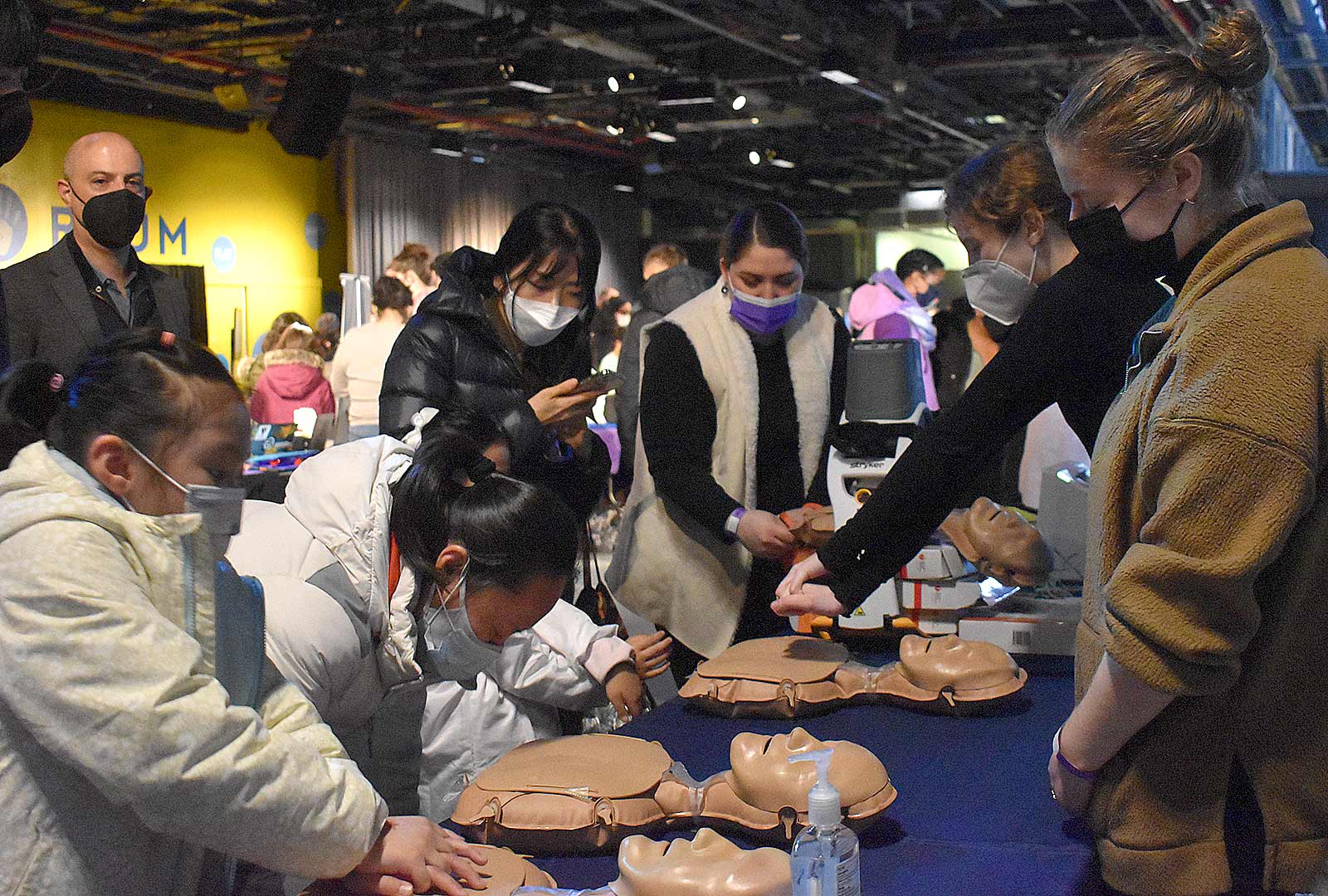
Parnia Lab Events
The Critical Care and Resuscitation Program at NYU Langone has hosted and participated in several events that explore areas of critical care, resuscitation, and consciousness. These groundbreaking events have included experts in the fields of critical care, resuscitation, psychology, philosophy, and neurology, to name a few.
Events at the New York Academy of Sciences (NYAS) and an investigator meeting hosted by the Parnia Lab provided researchers and health professionals with the ability to collaborate and speak about sensitive research topics regarding the future of medicine.
We hope these and future events may inform the public of our medical advances, and help others gain a better understanding of critical care, resuscitation science, consciousness, and more.
Recent Events
Our events in New York City give members of the community a chance to learn from our experts.
Girls in Science and Engineering Day at The Intrepid Sea, Air, and Space Museum
March 2022
The Parnia Lab participated in The Intrepid Museum’s eighth annual Girls in Science and Engineering Day, which featured hands-on experiences, exciting demonstrations, and engaging discussions provided by museum staff, STEM from Dance, Lamont Doherty Earth Observatory, Columbia University, students from Edward Murrow High School, Hudson River Park, New-York Historical Society, Girl Be Heard, and more. Dr. Parnia and staff from the lab taught CPR, demonstrated using a LUCAS chest compression device and an EKG, and showed videos about cardiac arrest and resuscitation to families and children of all ages.

Lucid Dying: Exploring Brain and Consciousness at the End of Life
March 2022
What happens to our brain, mind, and consciousness as we die? While a lot remains unknown about death, our understanding of this subject has evolved greatly in recent years. Death is the only experience that is guaranteed to every human being, and yet the end of life is also one of life’s great mysteries. Research that seeks to illuminate the complex processes surrounding death in the brain, body, mind, and consciousness has wide-reaching implications for neuroscience, medicine, psychology, and philosophy.
One area that is currently being investigated by researchers relates to episodes of lucidity in those nearing death. This includes terminally ill patients with advanced, severe dementia and those who have transiently crossed beyond the biological threshold of death during cardiac arrest. Researchers intrigued by this phenomenon are trying to better understand how it may be possible for people to experience such episodes of lucidity and to identify specific markers for this phenomenon. Importantly, they are also trying to find out whether such episodes can lead to novel treatments for debilitating neurodegenerative disorders such as dementia, while also studying how these recalled experiences surrounding death are informing our understanding of what happens to us all at the end of life.
This panel discussion for Brain Awareness Week brought together leading physicians and researchers, including Lindsey J. Gurin, MD, assistant professor of neurology, psychiatry, and rehabilitation medicine at NYU Grossman School of Medicine, who has expertise in neuro-rehabilitation; Megan Craig, PhD, associate professor of philosophy and art at Stony Brook University, who has an interest in the mind-body problem; Anthony P. Bossis, PhD, clinical assistant professor of psychiatry at NYU Grossman School of Medicine, who conducts psychedelic research; Donald Hoffman, PhD, professor of cognitive science at University of California, Irvine, studying consciousness; and Sam Parnia, MD, PhD, associate professor of medicine and director of Critical Care and Resuscitation Research at NYU Langone Health, who has dedicated his research to improving resuscitation techniques and understanding what happens to the human mind during and after cardiac arrest.
The panel explored current scientific discoveries regarding our understanding of death. In particular, the panelists reviewed the impact of recent discoveries related to the brain and consciousness that have wide-ranging implications for society.